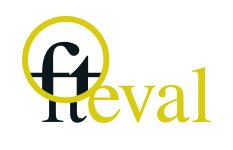-
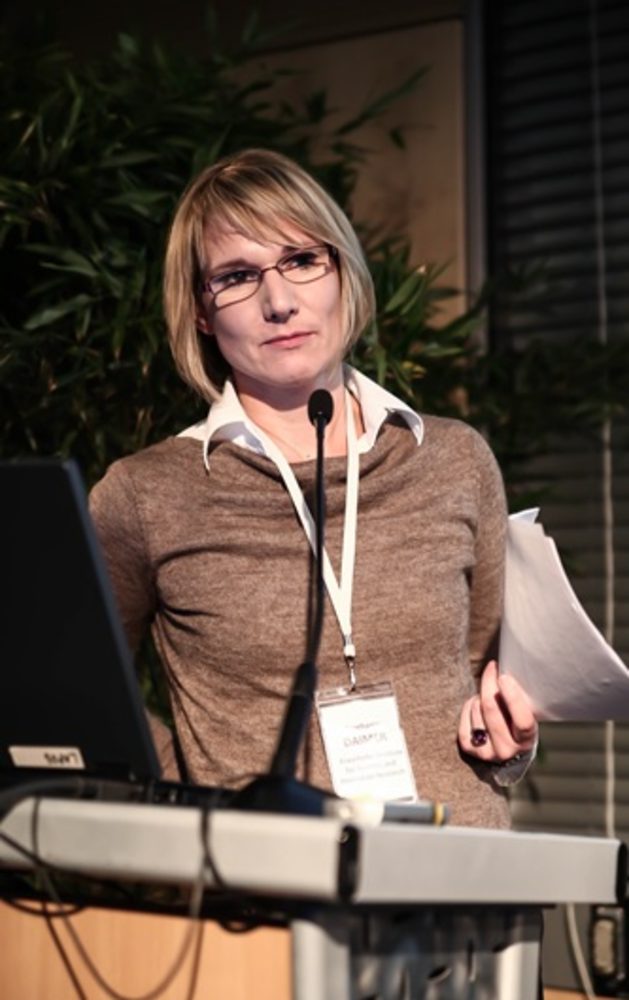
CONFERENCE „EVALUATION OF STI POLICIES, INSTRUMENTS AND ORGANISATIONS: NEW HORIZONS, NEW CHALLENGES“
Veranstalter: Österreichische Plattform für Forschungs- und Technologiepolitikevaluierung (fteval), Manchester Institute of Innovation Research und L'IFRIS - institut Francilien Recherche Innovation Société. Die internationale Konferenz „New Horizons / New Challenges: evaluation of STI policies, instruments and organisations” bot Evaluatorinnen und Evaluatoren, F&E-Managerinnen und F&E-Managern, Agenturen und Ministerien, ein Forum, um neue Entwicklungen und Herausforderungen moderner Forschungs-, Technologie- und Innovationspolitik und ihre Auswirkungen auf Theorie und Praxis in diesem Bereich zu diskutieren. Bekannte Expertinnen und Experten nahmen an der Konferenz teil, z.B. Irwin Feller (em. Penn State Univ.), Wilhelm Krull (Volkswagenstiftung), Dominique Guellec (OECD), Stefan Kuhlmann (Univ. Twente), Christina Schuh (Humboldt Stiftung), Göran Marklund [...]
-
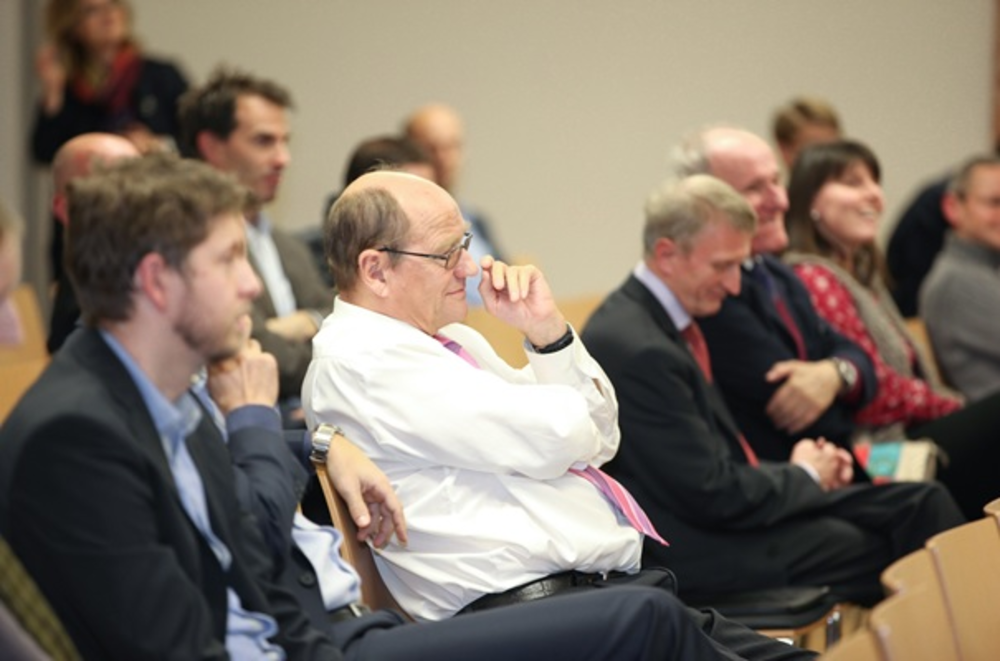
Wissens- und Technologietransfer –wirkungsvoll gestalten, effektiv evaluieren
2. Dezember 2013, bmwf Veranstaltungsräume Freyung Vorträge: Alexander J. Wurzer, Christian Rammer Der Transfer akademischer Wissenschaft in Wirtschaft und Gesellschaft ist seit vielen Jahren ein Kernthema im wissenschafts- und technologiepolitischen Diskurs und gewinnt zunehmend an Bedeutung. Wie aber können einschlägige Transfer- und Kooperationsbeziehungen tatsächlich erfasst, „evaluierungstauglich“ gemacht und kontinuierlich weiterentwickelt werden? Welche Indikatoren sind wofür geeignet und welche Daten sind bereits vorhanden? Was ist deren Aussagekraft und worin bestehen Limitationen? Was lässt sich aus den IP-Strategien von Unternehmen für die Gestaltung und Weiterentwicklung von Wissens- und Technologietransfer lernen? Diese Fragen und Herausforderungen, mit denen sich Programmverantwortliche, ProjektträgerInnen, Universitäten, Unternehmen und EvaluatorInnen [...]
-
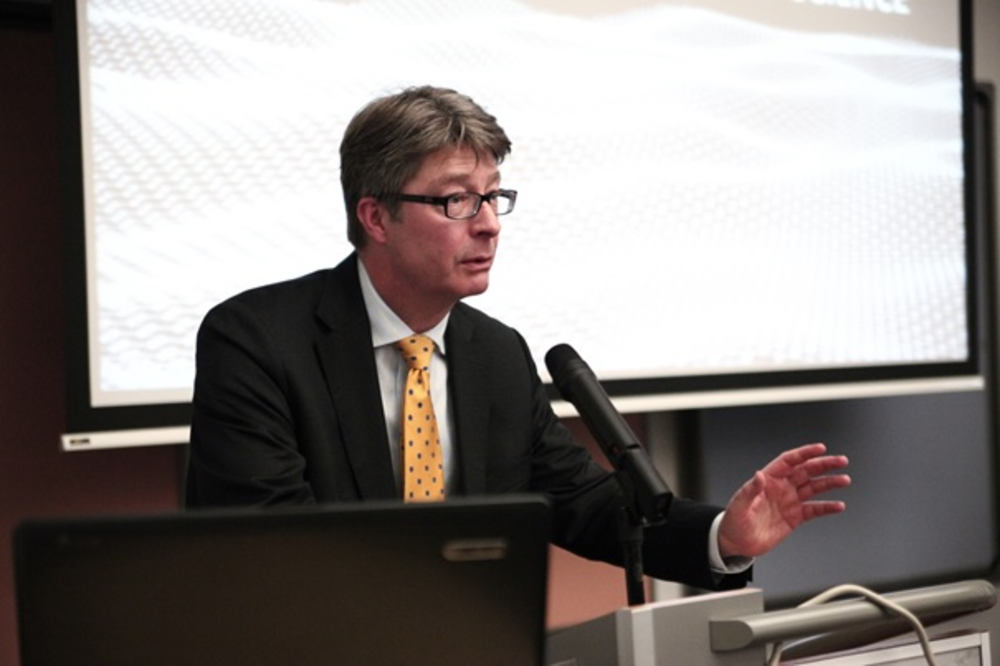
The Impacts of Impact Measurement. Effects of Public Funding Systems on Research in the United Kingdom
25. September 2014, Palais Strudlhof Vorträge: David Sweeney, Luke Georghiou The United Kingdom is a top research location in Europe. Its leading universities regularly appear in top-ten rankings of world-class universities. The country manages to attract both highly qualified researchers and students from all over the world. Simultaneously, the UK has implemented from an early stage institutional evaluation mechanisms that put these institutions into heavy competition. More recently, criteria for evaluating impacts of universities outside the academic domain have been introduced. This has spurred discussions and criticism on how universities and scientists should be evaluated. The event seeked to pursue the [...]
-
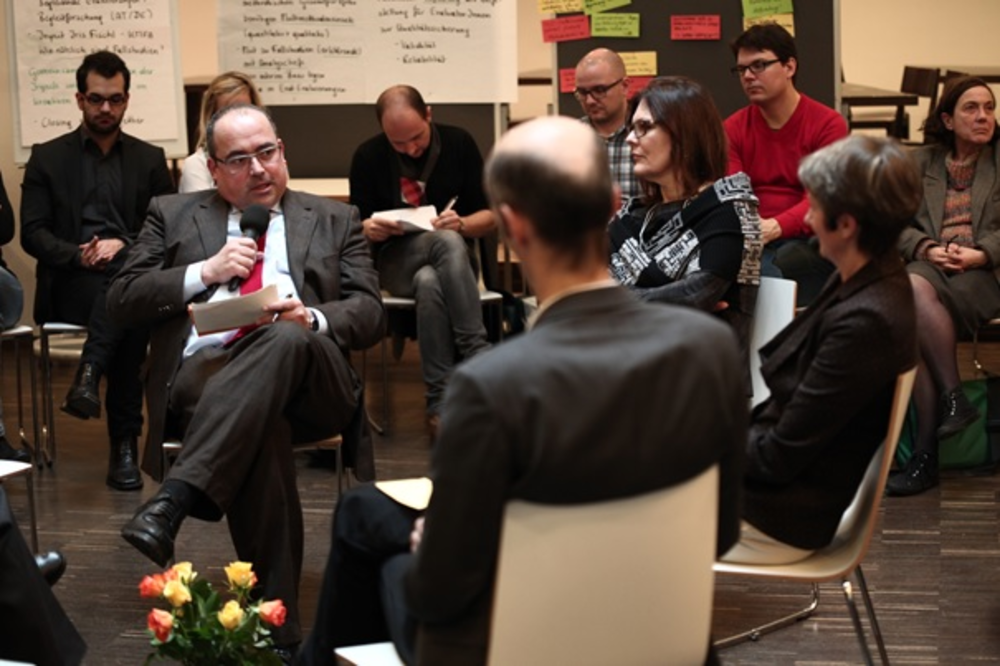
Nutzen und Grenzen von Fallstudien und begleitender Evaluierung in der FTI-Politikevaluierung
16. Dezember 2014, 9:00 – 12:00, Albert Schweitzer Haus Das Ziel dieser Veranstaltung war es, den methodischen Mehrwert, potentielle Anwendungsgebiete aber auch die Grenzen des Einsatzes und der Erkenntnisgewinnung von Fallstudien und begleitender Evaluierung in der österreichischen FTI-Evaluierungscommunity zu reflektieren und zu diskutieren. Zu diesem Zweck hatte die fteval kleinere Studien vergeben, deren Ergebnisse präsentiert und mit den Veranstaltungsteilnehmern diskutiert werden. Programm: Begrüßung und Einführung in das Thema Input I - Peter Kaufmann (KMFA:) Begleitende Evaluierungen / Begleitforschung: Was können sie leisten und wo liegen die Herausforderungen? Input II - Iris Fischl (KMFA): Wie nützlich sind Fallstudien im Rahmen von Evaluationen? Gemeinsames Bearbeiten [...]
-
Workshop on Research Evaluation in Austria
5.5.2015 im Haus der Forschung Die fteval unterstützte im Rahmen ihrer internationalen Zusammenarbeit einen Workshop über "Research Evaluation in Austria", der am 5.5.2015 im Haus der Forschung (Sensengasse 1, 1090 Wien) von 9:30 bis 16:00 stattfand. Gastgeber und Hauptorganisator war Joanneum Research. Es handelte sich dabei um einen study visit von ca. 20 tschechischen Expertinnen und Experten, die das österreichische System der Forschungsevaluierung (bzw. Teilbereiche desselben) kennen lernen möchten, um Schlussfolgerungen für die Weiterentwicklung des tschechischen Forschungsevaluierungssystems ziehen zu können. Mehr Information zu dem tschechischen Projekt, das Hintergrund des Workshops in Wien war, und bei dem es im Wesentlichen um 'new [...]
-
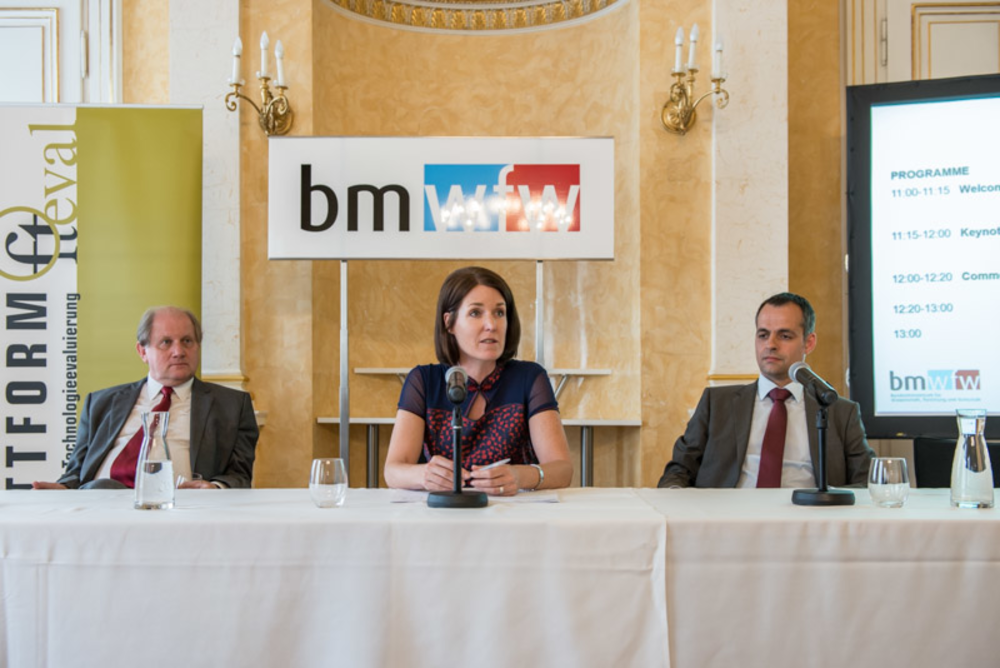
Success breeds success. Experiences from Singapore
18. Juni 2015 im Audienzsaal des BMWFW am Minoritenplatz 5, Wien Die Veranstaltung widmete sich dem Forschungssystem Singapurs, das seit seiner Unabhängigkeit 1965 einen sehr großen Aufholprozess in Bezug auf seine Industrialisierung sowie zur Entwicklung hin zu einer wissensbasierten Gesellschaft durchgemacht hat. Singapur hat sich durch große staatliche Investitionen vom Innovation Follower zum Innovation Leader (High-tech-Industrie / exzellente Forschung) entwickelt. In der Veranstaltung wurden die Bedingungen dafür sowie die Herausforderungen vor denen Singapur steht, genauer beleuchtet. Diese Veranstaltung ist Teil einer Reihe, die das österreichische Forschungssystem mit jenen anderer Länder vergleicht. Beginnend mit Herbst 2010 waren die Schweiz, Deutschland, Schweden, Frankreich, [...]
-

Making Researchers Identifiable – ORCID
24. August 2015 Mozarthaus Vienna, Domgasse 5, 1010 Wien Die korrekte Zuordnung von Wirkungen der Arbeiten einzelner Forscherinnen und Forscher (Outputs, Outcomes, Impacts) ist für Evaluatoreninnen und Evaluatoren gerade im Bereich der Forschungs-, Innovations-, und Technologiepolitik eine methodische und praktische Herausforderung. Selbst eine eindeutige Identifikation einer Urheberin und Urheber einer Arbeit, als Basis für eine weitere Zuordnung zu einem Projekt oder einem Paper, kann zu Problemen führen. Während es für die Identifikation von Publikationen mit dem DOI oder ISBN-Systemen breit akzeptierte Lösungen gibt, um Veröffentlichungen zielgenau zu identifizieren, ist dies für einzelne Personen ungleich schwerer. Die in diesem Bereich mittlerweile bedeutendste [...]
-
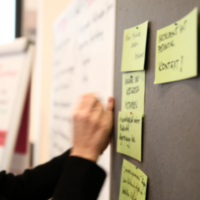
fteval Evaluationstrainings
Die fteval, die Österreichische Plattform für Forschungs- und Technologiepolitikevaluierung, organisierte drei einander ergänzende ganztägige Trainingseinheiten im Bereich der Evaluierung von Forschungs-, Technologie und Innovationspolitik zu8 den Themen ex-ante, interim und ex-post Evaluierung. Die fteval, die Österreichische Plattform für Forschungs- und Technologiepolitikevaluierung, organisierte drei einander ergänzende ganztägige Trainingseinheiten im Bereich der Evaluierung von Forschungs-, Technologie und Innovationspolitik zu8 den Themen ex-ante, interim und ex-post Evaluierung. Die Trainings richteten sich an Personen, die fundierte spezifische Kenntnisse in der Forschungs- und Technologiepolitikevaluierung erwerben möchten, insbesondere (jüngere) MitarbeiterInnen aus Ministerien und Agenturen (jüngere) EvalutorInnen aus Forschungsorganisationen und Beratung Die Unterlagen zum Traning können Sie hier [...]
-
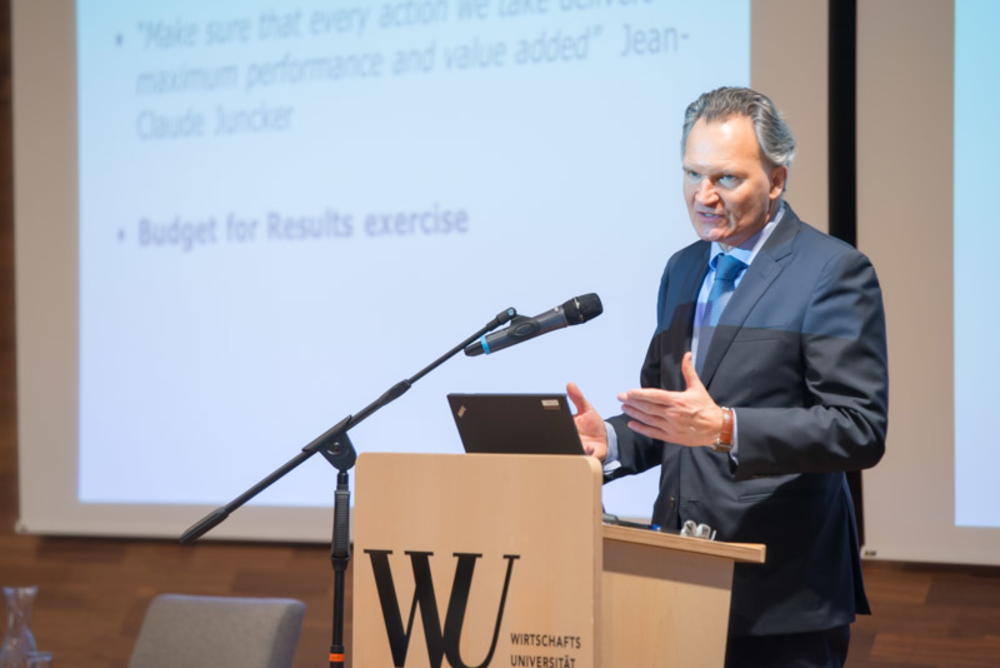
Rückblick Veranstaltung „Was hat das 7. Forschungsrahmenprogramm tatsächlich gebracht?“
Um die Wirksamkeit und Effizienz dieses weltweit größten Forschungsprogrammes zu evaluieren, wurde eine internationale Gruppe von Experten und Expertinnen seitens der Europäischen Kommission eingesetzt. Diese Ergebnisse wurden am 22.01.2016 präsentiert. Am 22. Jänner 2016 gingen wir unter dem Thema „Commitment and Coherence: Schlussfolgerungen der Ex-post-Evaluierung des 7. Forschungsrahmenprogramms“, der Frage nach, was das 7. europäischen Forschungsrahmenprogramm tatsächlich gebracht hat. Die Veranstaltung wurde von der Wirtschaftsuniversität Wien (WU-Wien), dem Bundesministerium für Wissenschaft, Forschung und Wirtschaft (BMWFW), der Österreichischen Forschungsförderungsgesellschaft (FFG) sowie der Österreichischen Plattform für Forschungs- und Technologiepolitikevaluierung (fteval) gemeinsam organisiert. Nach einer Präsentation von Andrea Höglinger (FFG), die die Position Österreichs [...]
-
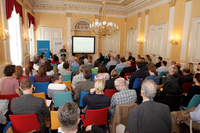
Veranstaltung zum Hochschul- und Forschungssystem der Niederlande am 1. Juni
Nationale Hochschul- und FTI-Systeme im Vergleich – die Niederlande Kohärenz, Diversität, Exzellenz!? Zur Governance des niederländischen Universitäts- und Forschungssystems und was man davon lernen kann Donnerstag, 1. Juni 2017, 14:00-16:00 Uhr Ort: Veranstaltungsräume BMWFW, Freyung 3, 2. Stock, 1010 Wien Programm: Begrüßung Barbara Weitgruber (Leiterin der Sektion Forschung, Bundesministerium für Wissenschaft, Forschung und Wirtschaft) Keynote Sijbolt Noorda (President Magna Charta Observatory, Bologna, Former President Universiteit van Amsterdam and the Dutch Research Universities Association): Can national systems of Higher Education and Research learn from each other? (Vortrag in englischer Sprache) Podiumsdiskussion (in deutscher Sprache): Sijbolt Noorda, Helga Nowotny (Vorsitzende ERA Council Forum [...]
-
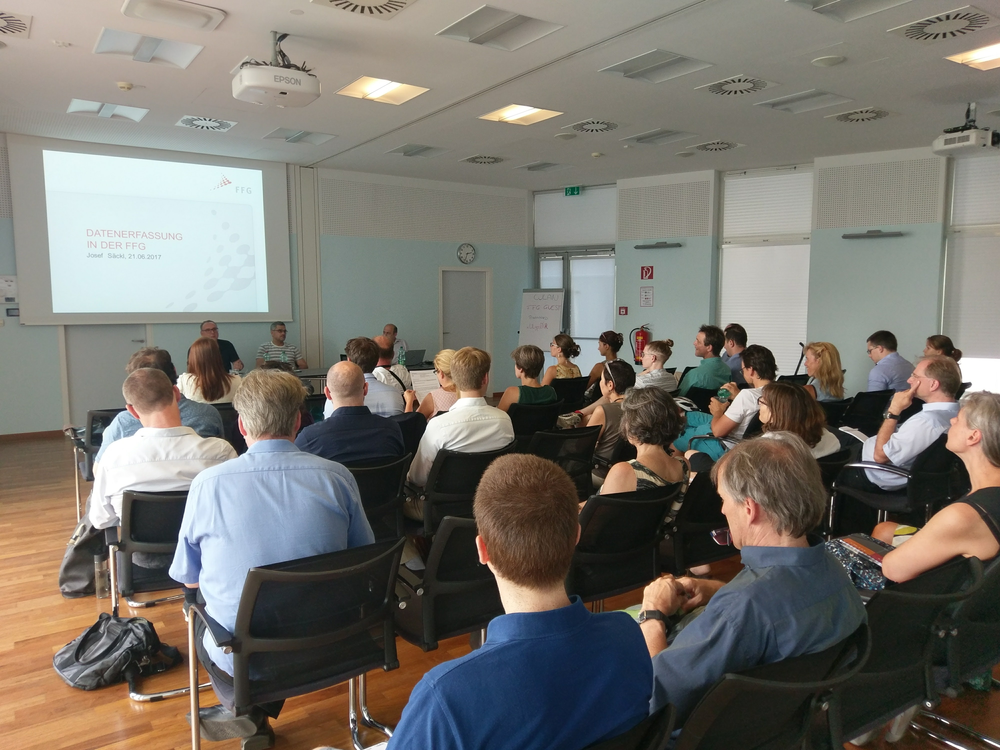
Monitoringdatenbanken und ihr Nutzen für FTI-politische Evaluierungen
Bei der Veranstaltung vom 21. Juni 2017 gewährten die FFG und FWF gemeinsam mit der fteval einen umfassenden Einblick in den Aufbau, die Struktur sowie die Zugänglichkeit der Monitoringdaten der beiden großen österreichischen F&E-Förderagenturen. Sekundärdaten allgemein und Daten aus Monitoringdatenbanken werden für FTI-politische Evaluierungen immer wichtiger. Gleichzeitig werden Montoringdaten immer besser und inkludieren mehr und mehr Zeitreihen. Mit dieser Veranstaltung ermöglichte die fteval gemeinsam mit der FFG und dem FWF einen umfassenden Einblick in den Aufbau, die Struktur sowie die Zugänglichkeit der Monitoringdaten der beiden großen österreichischen F&E-Förderagenturen. Durch transparente und offene Präsentationen und Diskussionen wurde damit ein Beitrag dazu geleistet [...]
-
fteval inside : insight fteval – „Implementierung und Evaluierung von Gleichstellung im FTI-Bereich“ hosted by Joanneum Research
JOANNEUM RESEARCH – POLICIES hat in unterschiedlichen Ländern die Implementierung von Gleichstellungsmaßnahmen begleitend evaluiert, sich mit den Anforderungen an Messinstrumentarien und -indikatoren befasst und Handlungsoptionen erarbeitet. JOANNEUM RESEARCH – POLICIES hat in unterschiedlichen Ländern die Implementierung von Gleichstellungsmaßnahmen begleitend evaluiert, sich mit den Anforderungen an Messinstrumentarien und -indikatoren befasst und Handlungsoptionen erarbeitet. Im Rahmen eines fteval inside : fteval insight möchte das POLICIES-Team die entsprechenden Erfahrungen und gewonnen Einsichten anhand aktueller Projekte auf inhaltlicher, prozessualer und methodischer Ebene vorstellen und diskutieren und dabei insbesondere der Frage „Wie können Wirkungen gemessen werden?“ nachgehen. fteval inside : fteval insight Mitglieder laden Mitglieder ein, [...]
12 Veranstaltungen gefunden.

